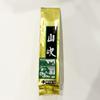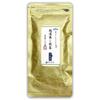----------------------------------------------------------------------
【Voltage Compatibility】
When using electrical appliances, please note that they are designed for Japanese voltage specifications (90-110V), so if you use them with a different voltage, it may cause a malfunction.
【Plug Type】
Our products use Japanese plug types (A or B type).
Please use a conversion adapter if necessary.
【Important Note on Transformers and Adapters】
A transformer adjusts voltage to match your device’s requirements.
A conversion adapter only changes the plug shape and does not adjust voltage.
Using only a conversion adapter without a transformer may result in damage to the product.
【Liability】
We are not responsible for malfunctions or damages caused by improper use, such as operating the product without a transformer.
----------------------------------------------------------------------
[Shogun Coffee] French-style coffee from the end of the Edo period. Indonesian beans are deep roasted. A rich, velvety wine texture with a subtle sweetness that lingers until the very end. It goes great with milk and is also delicious as a cafe au lait.
The light-proof aluminum packaging keeps the flavor fresh for a long time. Also makes a great gift.
The expiration date is three months from the date of manufacture. It is often used in coffee shops.
It is recommended to extract the tea using water at 80-85℃.
The rich, delicate sweetness is reminiscent of a velvety wine, and can be enjoyed down to the last drop.
It goes perfectly with plenty of milk, and is also very popular at our directly managed stores as "Shogun Cafe au Lait."
"Mandheling" from the former Dutch colony of Sumatra is roasted in the French style of the time based on historical facts.
French-style coffee from the end of the Edo period. Deep roasted Sumatra coffee beans from Indonesia. The rich, finely mellow sweetness is reminiscent of velvety wine, and can be enjoyed until the last drop. It goes perfectly with a generous amount of milk, and is also very popular in stores as "Shogun Cafe au Lait." From an encounter with the direct great-grandson of Tokugawa Yoshinobu, the fourth head of the family. The last shogun, Tokugawa Yoshinobu, was born into the Mito Tokugawa family, passed through the Hitotsubashi Tokugawa family, inherited the main Tokugawa family, and became the 15th Shogun. He accepted the return of power to the Emperor at the end of the Edo period and resigned from his position as shogun, was placed under house arrest, and retired. He later received the title of duke, and established the "Tokugawa Yoshinobu family" separately from the main Tokugawa family. The fourth generation of the "Tokugawa Yoshinobu family" was originally interested in coffee and was a coffee enthusiast who frequented famous stores in Tokyo for many years. At the request of SAZA Coffee, Tokugawa Yoshitomo gave a lecture at the Coffee Culture Society in 2000, in which he said, "Tokugawa Yoshinobu was also a coffee drinker." Since then, they have become good friends and he has come to SAZA Coffee to train in coffee roasting. When "Tokugawa Shogun Coffee" was being developed, the fourth-generation owner volunteered to be in charge of roasting. He commuted from Tokyo to Ibaraki on roasting day and devoted himself to roasting. He has been working on his ingenuity together with SAZA Coffee.
He worked at Saza Coffee as a roasting craftsman for about 10 years. In 1867, when Prince Yoshinobu represented the Edo Shogunate in negotiations with European and American envoys to open ports, he hired a French chef and served coffee to the envoys. At that time, the world's coffee bean distribution was in the "Mocha Java" era, and the Netherlands already accounted for 60% of the market at its peak, so we roasted "Mandheling" beans from the former Dutch colony of Sumatra in the French style of the time based on historical facts. Please try it. We decided to go to the Matsudo History Museum, and Tokugawa Yoshinobu (the 15th Tokugawa Shogun) told us about the "menu and coffee" that he drank with European and American envoys before the Meiji Restoration. It turns out that Tokugawa's great-grandfather was Duke Yoshinobu Tokugawa, the last Shogun. If the conditions had been different and it had remained in the Edo period, we could have imagined the possibility of Tokugawa becoming the 18th Shogun. Also, Tokugawa-san said, "I want to roast coffee." It seemed interesting, so I started developing products with him. French roast is French cuisine, and Indonesia, which was a Dutch colony, was the world's largest producer of Arabica coffee at the time. At that time, French roast was "charcoal roast" and then "coke roast."
With the possibility of this happening, I put a lot of coke into a coffee roaster that uses charcoal as a heat source and roasted with Tokugawa. The side of the roaster made of cast iron with the coke glowed red and the roaster roared, and "Tokugawa Shogun Coffee" was born from Indonesia's "Mandheling". Tokugawa was in charge of roasting 100% of the delicious "Shogun Coffee" for about 10 years from 2004, when "Shogun Coffee" was first sold in preparation for the 400th anniversary of the Tokugawa era, until he retired in 2014 when he turned 60. Tokugawa is a coffee man with a craftsman's spirit, and I think I inherited my values from Tokugawa. In order to realize "Recreating the coffee that the Shogun drank during the Edo period, the great-grandson of the Shogun Tokugawa Yoshinobu", I roasted coffee beans with Tokugawa many times at first.































![Sawai Coffee Coffee Spesialbutikk Yakumo blandingssett x 160 kopper Super Large Yakumo 1,6 kg (400 g 4) [Medium Ground]](https://img.joomcdn.net/e9467ea36cb8c3608740f05a17893f8c809ea3b1_100_100.jpeg)




